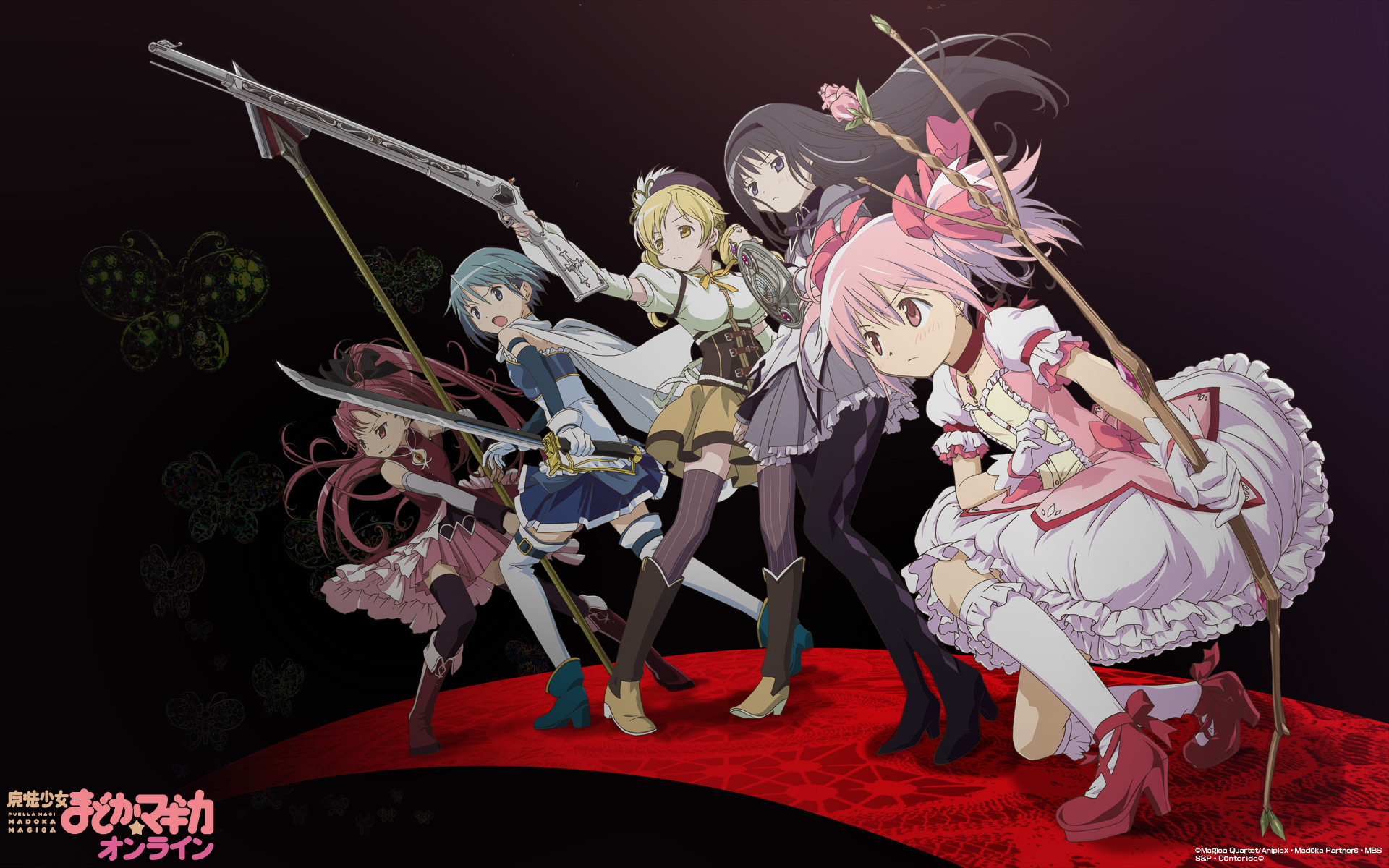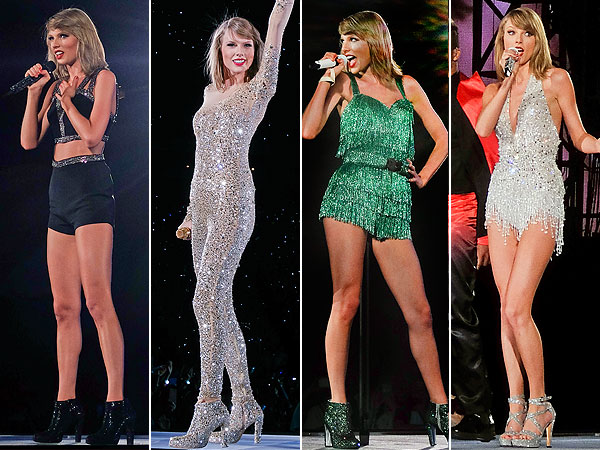Neil Young had risen to the status of Rock God in the 70s, after riding a rising wave built with the Buffalo Springfield, Crosby Stills & Nash, and solo classics. But the 80s had seen him falter some, with idiosyncratic projects that had lost him a lot of fans. In the 90s he was poised to retake his throne, and he struck hard right at the cutting edge of modern music. Before grunge had even made its way into the mainstream, before Nevermind had even been recorded, Neil was already releasing furious, feedback-drenched, counter culture records that could have come out of Sub Pop or Steve Albini's studio. He rocked so hard in the early 90s that he temporarily lost his hearing, and astonishingly switched gears with soft, soulful acoustic music reminiscent of his classic 70s hits.
For Neil, the 90s was an era of extraordinary, transluscent guitar jams, hearth-warming cherished ballads, and dark, somber contemplations. It was his most culturally relevant decade since the 1970s and it's some of the most fantastic music ever put to needle.
This is part two in my six-part series compiling the 100 Greatest Neil Young Songs of All-Time. Be aware this includes material released in the 90s only, but due to Neil's live performances being so part and parcel of his triumphs in this era, and due to the sheer quality of that material, live versions of old songs are included on this list. I mean, what is 90s Neil without Weld?
Click any song's name to hear it on youtube!
#20. Guitar Solo #1
[Dead Man, 1996]
The album may be confounding for those not interested in the genre, but as a fan of noise music, I couldn't be happier to learn this existed. Superior in craft to Arc and with more complex instrumentation than Le Noise, Dead Man is easily his most fully-realized and by far his best foray into noise music. All six "guitar solo" tracks are exquisite, but this first slab is the best piece, with a split between subtle soundscape and cacophony, and just a little tease of this soundtrack's recurrent melody. It's no surprise that an artist as adept at crafting sonic soundscapes in guitar jams like Cowgirl or Hurricane would be good at making noise music, but it's a big surprise that he'd bother to, for such a little-loved genre.
#19. Welfare Mothers
[WELD, 1991]
This slab of punkish glee first came out on Neil's 1979 Rust Never Sleeps, but the rowdy, thundering Weld version nearly doubles the song's original runtime with screaming guitar solos, overdrenched feedback (bring your raincoat!) and a billowing shouting match between Neil and Poncho. It's emblematic of everything great about Weld, and irrevocable proof Neil could go toe to toe with any of the loudest, grungiest, screamy-iest rock bands from the early 90s.
#18. Mansion on the Hill
[Ragged Glory, 1990]
Ragged Glory was the dawning of a new stride for Neil and it was a welcome punch in the face to fans who might have been befuddled over Neil's experimentation in the 80s. Neil opened the 90s with his hardest rocking studio album ever, and a strong new ferver that instantly ingratiated him to the alternative rock scene on the cusp of exploding. Mansion on the Hill carries a hippie message with a joyous chorus, but it rocks a knife-sharpening riff and some licks that might cut glass.
#17. Scenery
[Mirror Ball, 1995]
After meeting up at charity concerts such as Neil's Bridge School and the 22nd anniversary of Roe V. Wade (also featuring L7!), Neil and Pearl Jam "got to talkin'" and they recorded Mirror Ball together, the godfather enlisting the new wave as often happens. As you would expect, the result is looser than Pearl Jam, but tighter than Crazy Horse. The pinnacle of the record is this just-under-9-minute expanse. Like much of Neil's 90s work it is a slow, contemplative jam, this time with a strong tinge of warm world-weariness (if you can't imagine how those two can combine -- just listen to the song!)
#16. Harvest Moon
[Harvest Moon, 1992]
You might not have noticed, but Neil Young is obsessed with dancing. We have titles like When You Dance, Last Dance, We Never Danced, She's Always Dancing, and Dance Dance Dance, plus two dozen other songs about dancing like Cinnamon Girl ("your baby loves to dance"), Hanging on a Limb ("she taught him how to dance"), You and Me ("dancing in the evening light"), and you could truly go on and on. But in Harvest Moon, Neil wrote likely his best dance song ever, a cheery waltz with an infectious, irresistible rhythm and the promise of love. A mere whiff of the track imbues the listener with vivid images of paper lanterns and a wooden deck somewhere on a warm autumn's eve, fireflies all around.
#15. Love to Burn
[Ragged Glory, 1990]
A slippery-wet lick slides on down to the beach for some surf and forms the backbone of this song. Before long, Neil's crooning about romantic ghosts and grim quarrels between broken lovers, then it turns into a ten minute guitar workout. This is one of Neil's grooviest tunes, with clever lyrics and irresistible solos, an instant classic for the Crazy Horse set. One of Neil's all-time most memorable riffs.
#14. Human Highway
[Year of the Horse, 1997]
The differences between this and the many other versions (the '76 studio original, the Bridge School version with Peggy) may be subtle, but they are significant. This slow plodding, world-weary version performed by Crazy Horse is more morosely beautiful and it's the best rendition of this mournful classic. On this one you really feel their fatigue over the broken shape of the world, as they stretch out with at least one hand, grasping for understanding.
#13. Big Time
[Broken Arrow, 1996]
The 90s were a peak era for Neil to commune with his musical cousins in the modern underground, but he was also a millionaire who had been releasing records for thirty years. The trials of youth were long over and he had achieved every measure of artistic success, plus he was back on top as one of the most respected musicians of the modern day. These attitudes show through in a lot of his 90s work. Big Time is by far one of Neil's most contented songs ever, shimmering with the low heat of no worries and nowhere to go, powered by gorgeous guitar jams that go on forever.
#12. Driveby
[Sleeps With Angels, 1994]
The intention of Sleeps With Angels was to recapture the dark and experimental concepts from Tonight's the Night. But where Tonight's the Night was an "Irish wake," full of cathartic laughter in the face of death, Sleeps With Angels was just a wake, ruminating on death. Driveby is a hauntingly simplistic song built on a funeral beat and an even more mournful vocal. "I can't believe a machine gun sings," Neil croons with palpable hurt in his voice. "Driveby... driveby... driveby..." The chorus is a chant, nearly a seance.
#11. Unknown Legend
[Harvest Moon, 1992]
With a wistful, echoing electric riff trailing off into the annals of time as the song strums along with archetypal folkiness, Unknown Legend is an ode to an unsung hero working her way through life as a waitress. As someone who works at a diner, and has seen this story pan out in realtime on a dozen occasions, it does hold extra special weight with me. But it's also one of the catchiest songs on Harvest Moon, and it articulately captures the way that life runs away with us all over time.
#10. Barstool Blues
[Year of the Horse, 1997]
Year of the Horse can be a contentious live album for Neil fans, but to me it pinpoints the pinnacle of what Crazy Horse can accomplish: rock 'n rol l bar band jams so softly lucid they start seriously rubbing up against the noise genre. Contrary to the in your face attitude of Weld, Year of the Horse is a laidback, less sober affair. It's similar to the distinction between Time Fades Away and On The Beach: one's a defiant stand against the world, while the other is content to board up the windows, forget the world and wallow in a solitary haze. Nowhere is this tapped more coherently than in Barstool Blues, already a hallucinatory drinking song from the Zuma days, now it's been run through a strainer and mixed with a quart of absinthe to become a nine minute slow-pulsing journey.
#9. Transformer Man
[Unplugged, 1993]
Neil Young's stint on MTV's reputable Unplugged series was fairly haphazard, and a lot of the tracks didn't turn out flawless. But Neil always has some clever ideas up his sleeve. Going between rancorous electric guitar rock band versions, to soft-n-sweet solo-acoustic versions, and even into piano and banjo versions for any particular song is no new phenomenon for Neil. But taking songs from the electronic and vocoder-feuled Trans album for his Unplugged performance was an inspired and daring choice that most audiences hadn't been aware of. This homey, Harvest Moon-styled rendition of Transformer Man is one of Neil's most beautiful and brilliant tracks, eccentuating the utterly gorgeous melody underneath what many had soundly written-off due to its initial genre.
#8. Pocahontas
[Year of the Horse, 1997]
Pocahontas started out as a twelve-string campfire song, something a cowboy might sing on the range. On Year of the Horse it's transmuted into an acerbic electric needle, or maybe some kind of big generator with a beautiful mural painted on it: a little harsh and a lot endearing. Its dark wit becomes stronger than ever and the new electric version smartly serves as a metaphor in and of itself, of the lost paradise and increased industrialization that killed off the early American glory, as described in the song's lyrics.
#7. Slip Away
[Broken Arrow, 1996]
The typical Crazy Horse record is maybe 70% rockin' out, 30% interplanetary travel. Broken Arrow is 90-100% interplanetary travel. Heavy riffs are exchanged for cosmic, billowing ones. Slip Away takes this trend even further with a spidery, spindling instrumentation and lyrics about a lady disappearing into the music of a smoke-filled barroom. It's one of the most perfect examples of lyrics that fit the tune, and even the album. The music from Slip Away will send you flying through the clouds, and that's exactly what the lyrics say. It's on a level of pure weightlessness equaled only by a couple of Crazy Horse jams, namely Hurricane and Cortez.
#6. You and Me
[Harvest Moon, 1992]
As someone who (clearly) prefers Neil's electric work, it took me a long time to 'get' Harvest Moon. The lyrics "I was thinking 'bout you and me, making love beneath the trees. And now I wonder, could it be?" sung in an eerie-soft whispered harmony, over a sparse, fire-lit riff? This, on a fateful relisten, stopped me dead in my tracks and made me realize there's truly something to this record after all. Aside from Will to Love, which features a literal fire crackling in the background of the recording, You and Me is the all-time quintessential Neil song for laying by the fireplace or dancing in the woods beside a campfire. It is overflowing with warmth and idyllic sentimentality, but there's nothing maudlin about it, it feels genuine. It feels less like a fantasy and more like a memory, a memory of one of the best nights you ever had.
#5. Fuckin' Up
[WELD, 1991]
The 1990s were an era of disillusionment and anger, captured notably by the decade's wave of grunge rock musicians. But before anyone outside of the underground even knew that such music existed, Neil was already playing it, and even *epitomizing it*, with this cynical, self-deprecating, roaring hard rock anthem. A pounding riff informs the track while the lyrics explore feelings of being lost and helpless. This WELD live version adds that extra fuzz and fury to make an already A+ great song into a ferocious classic.
#4. Prime of Life
[Sleeps With Angels, 1994]
In Sleeps With Angels, Neil created the ultimate, indispensable 'deep night' album, emanating with the shadowy tones of a thinly-peopled after-hours jazz club. You know the place, the kind of place where the mood lighting is turned down so low, you couldn't see five feet in front of your face even if you were sober. Prime of Life is the record's moodiest cut: incomprehensible lyrics like "footsteps run down the castle hall to the rooms of the paper doll" inform you of Neil's spaced-out intentions with a soft spoken voice, while lightly touched jazz chords pace briskly by and some kind of pan flute doles out a sorrowful whine, quite possibly being performed by a satyr from another dimension. I mean, you never know what you'll find at an after-hours club.
#3. Love and Only Love
[WELD, 1991]
With a groove-tastic bassline and choppy, tasty licks dotting the length of the tune, this is one of Neil's all-time greatest jams as well as one of his best rock songs, with a killer riff and a great melody. The emphatic, epic chorus demonstrates one of my favorite of Neil's modes and it's brimming with the power of love. It's catchy and glorious. Powerhouse may be an overused phrase, but this is a true powerhouse.
#2. Like a Hurricane
[WELD, 1991]
Inarguably one of Neil's chief classics, Hurricane's been done a lot of great ways over the years. In fact, it's one of only two songs you're going to see multiple times in this top 100 project. This 90s version is utterly essential for numerous reasons. It takes the sharper tone adopted from the 70s live versions and pushes it up to 11, then adds the feedback and intensity natural to this period. The result is the most ravenous version of all-time, pitilessly pummeling you with powerful guitar licks. The song is called Like a Hurricane, and this is without a doubt the most Hurricane-like version of the track, as Neil is yet again able to speak a song's theme both with its words and its instruments. This is also the longest released version of the song, at a delicious 14 minutes!
#1. Change Your Mind
[Complex Sessions, 1994]
Change Your Mind captures the supreme best of both Neil's great achievements in the 90s, his shadowy, subtle side, and his screaming guitar side. Hailing originally from Sleeps With Angels, it wholly encapsulates the murky-cool atmosphere of that record, plus the most serene and gorgeous guitar solos you'll find this side of Cowgirl in the Sand. At the eight-minute mark, the song slows down to a quiet crawl and enters pure transcendence, letting the band have real space to breathe and coax reluctant spirits from the ether. It's a revelation of a song, one of a kind. Helmed by award-winning film director Jonathan Demme (Silence of the Lambs) who would go on to film 3 feature-length concerts films for Neil, The Complex Sessions captured an even purer, even smokier, even darker version with superior slick jams.
There you have it! Check back for my entries regarding the 21st Century, 60s/70s, and Performance Series, together forming Neil's 100 best songs!












































